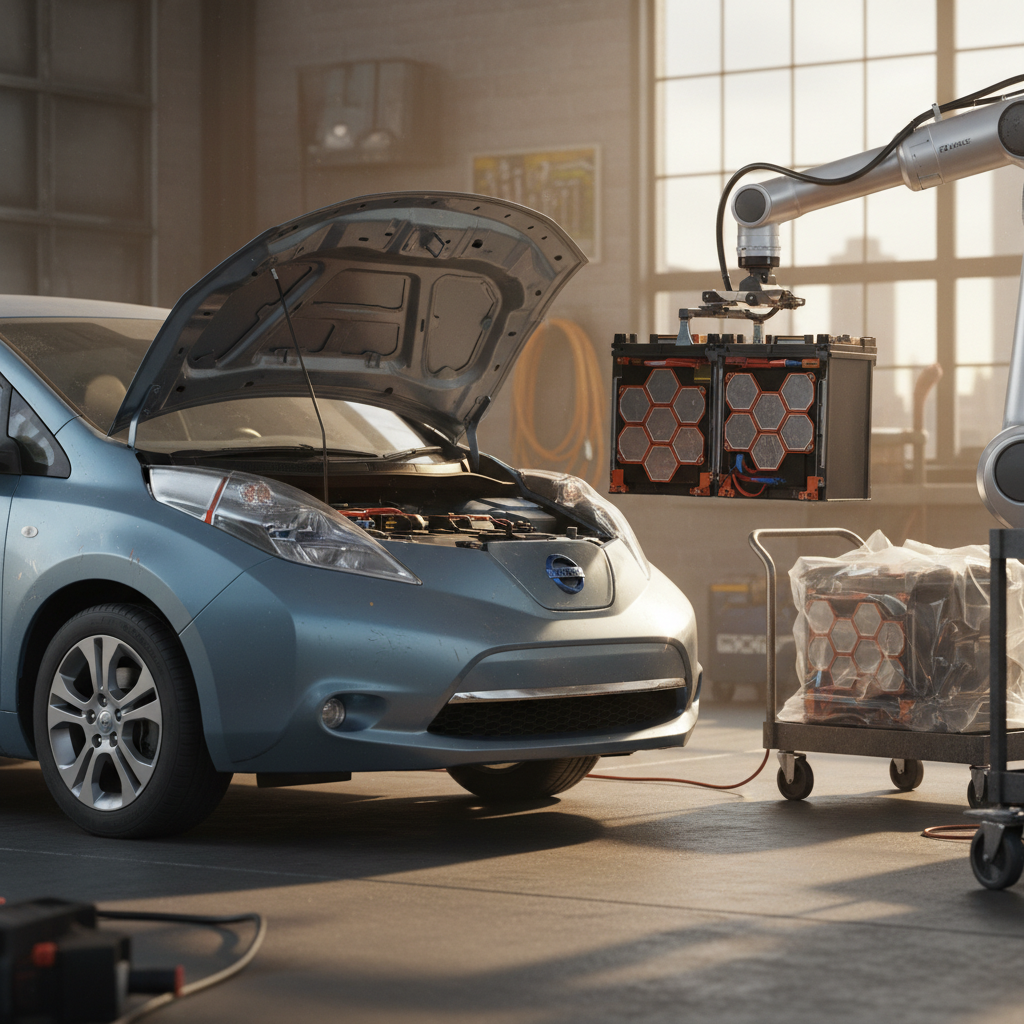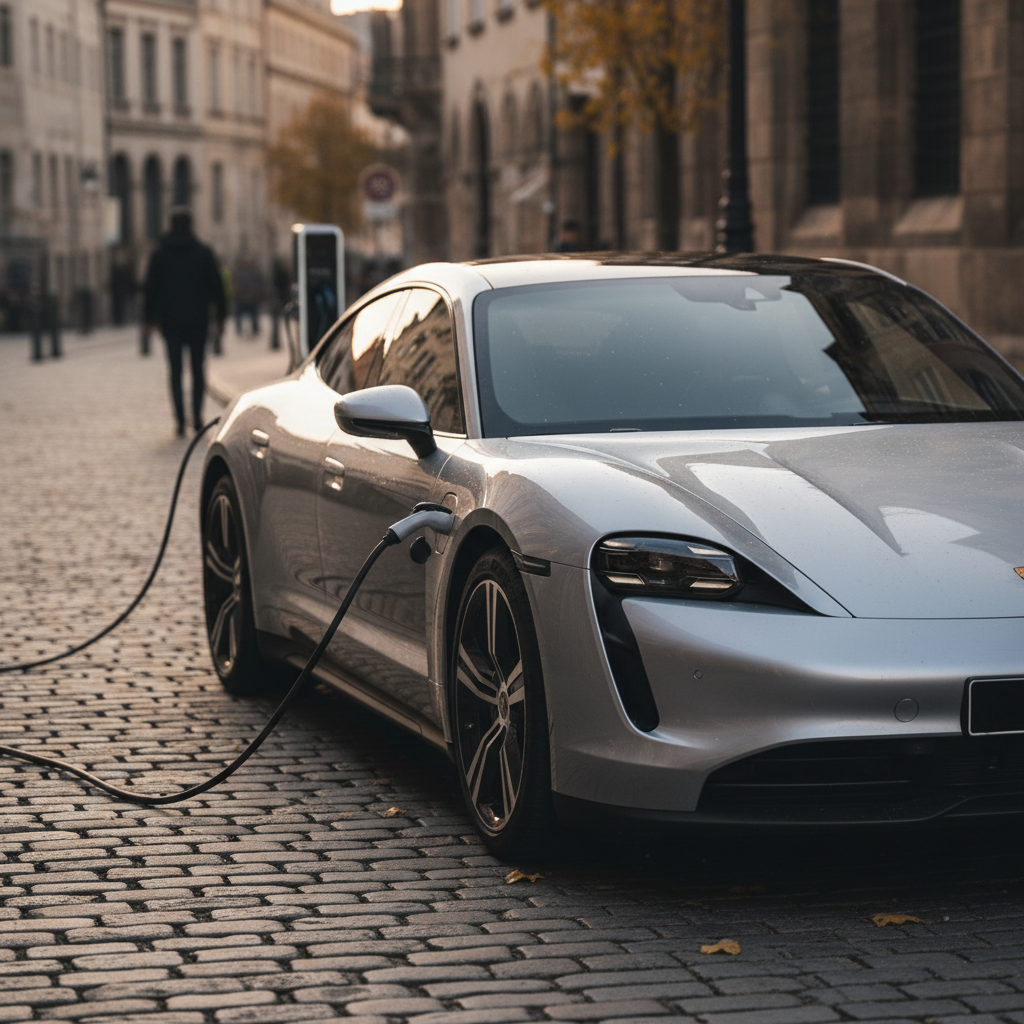If you’re looking at a flagship electric sedan, it’s natural to wonder about BMW i7 battery replacement cost. You’re talking about a ~100 kWh pack in a six‑figure luxury car, so is a future replacement a $5,000 problem or a $25,000 nightmare? The truth sits somewhere in the middle, and most owners will never pay it out of pocket.
Key takeaway
BMW i7 battery replacement cost overview
BMW i7 battery cost at a glance (2025)
BMW does not publish a public MSRP for an i7 replacement battery, and there isn’t yet a long track record of out‑of‑warranty replacements. But we can triangulate from similar‑size luxury EV packs and BMW battery pricing on models like the iX. Recent industry guides and BMW‑focused sources put large BEV pack replacements in the $15,000–$20,000 range including labor for vehicles with ~100 kWh batteries, with the pack itself around $12,000–$15,000 and $1,500–$3,000 in labor, taxes, and shop fees.
Don’t confuse 12V with high‑voltage
How much does a BMW i7 battery replacement cost?
Putting the pieces together, a realistic 2025 view for an out‑of‑warranty BMW i7 battery replacement cost at a U.S. BMW dealer looks like this:
Estimated BMW i7 battery replacement cost (out of warranty)
These are directional 2025 estimates for a full high‑voltage pack replacement in the U.S. Actual prices vary by dealer, region, and parts availability.
| Item | Estimated cost | Notes |
|---|---|---|
| High‑voltage battery pack | $12,000–$15,000 | Large ~100 kWh luxury EV pack pricing benchmark |
| Labor & shop supplies | $1,500–$3,000 | Pack swap, diagnostics, software updates, HV safety procedures |
| Taxes & fees | $500–$1,000 | Varies by state and dealer |
| Total estimated bill | $15,000–$20,000 | Out‑of‑warranty, dealer-installed OEM pack |
Think of these figures as planning numbers, not exact quotes, always confirm with a BMW service center.
Dealer vs third‑party options
- Compact EVs with 40–60 kWh packs often fall in the $5,000–$10,000 range for a replacement.
- Mainstream crossovers with 70–80 kWh packs typically land around $8,000–$15,000.
- Luxury, long‑range sedans and SUVs with ~100 kWh packs, like the i7, generally run $12,000–$20,000+ including labor.
Seen in that context, the i7’s likely battery replacement cost is high, but not out of line with what you’d expect given its battery size, performance, and market position.
What the BMW i7 battery warranty actually covers
The big reason most owners never see that $15,000–$20,000 bill is BMW’s high‑voltage battery warranty. In the U.S., new BMW EVs, including the i7, come with an 8‑year / 100,000‑mile high‑voltage battery warranty, layered on top of the standard 4‑year / 50,000‑mile new‑vehicle warranty. Some CARB states may have additional emissions‑related coverage, so it’s worth reading the warranty booklet for your specific model year and state.
- Defects in materials or workmanship of the high‑voltage battery pack and related components during the warranty period.
- Coverage if the battery fails outright or experiences abnormal degradation below BMW’s specified threshold.
- Repair or full pack replacement at BMW’s discretion when a warranty claim is approved.
Check the fine print
One more nuance: BMW expects you to follow the maintenance schedule and avoid unauthorized high‑voltage work. Skipping service or letting an unqualified shop open the HV system can create arguments over coverage, so keep documentation tidy.
How long BMW i7 batteries really last

Modern EV batteries are aging far better than early fears suggested. Large‑pack luxury EVs are generally seeing only a few percent of capacity loss in the first years, then a slow taper over time. Recent analyses of EV fleets across brands put average degradation around 1.5–2% per year, depending heavily on climate and usage.
- Using DC fast charging occasionally rather than exclusively.
- Avoiding extended parking at 0% or 100% state of charge.
- Keeping the i7 in a garage or shaded parking in very hot or very cold climates.
- Letting the car manage its own thermal conditioning rather than trying to “outsmart” it with extreme charging habits.
High replacement rates are rare
Signs your BMW i7 battery might need attention
Before you ever get near a full replacement, your i7 will usually give you hints that something in the high‑voltage system needs attention. Not all of these mean the pack is failing, many are fixable issues with modules, sensors, or cooling hardware, but they’re all worth checking quickly.
Common warning signs to watch for
1. Noticeable range loss
If your real‑world range drops 25–30% from what you consistently saw in similar conditions, and charging behavior hasn’t changed, have the battery health checked.
2. Frequent or unexpected DC fast charging needs
Needing to fast‑charge constantly on routes that used to be easy suggests reduced usable capacity, or, in some cases, software or charging‑infrastructure issues.
3. Battery or drivetrain warning lights
Any persistent high‑voltage or powertrain warning icon is a reason to stop guessing and book a diagnostic visit with a BMW EV‑trained technician.
4. Abnormally slow charging
If the car no longer charges at expected AC or DC rates, it could be pack temperature, a charger problem, or, less commonly, internal pack issues.
5. Unusual noises or smells
Clicks and whirrs from contactors and cooling pumps are normal, but harsh buzzing, burning smells, or coolant odors demand immediate professional attention.
Don’t poke the high‑voltage bear
Ways to avoid paying full BMW i7 battery replacement cost
You may never need a battery, but it’s still smart to think about how to avoid eating a five‑figure bill. Some of the best protections are decisions you make long before a failure.
Strategies to reduce your risk exposure
From how you drive to how you buy, small decisions matter.
Leverage the factory warranty
For the first 8 years/100,000 miles, BMW shoulders the risk of a defective battery.
- Document any major range changes.
- Get issues logged at a BMW center early.
- Keep up with software updates and recalled campaigns.
Prioritize battery‑savvy ownership
You don’t need to baby the i7, but smart habits help:
- Avoid living at 0% or 100% charge.
- Use DC fast charging when you need it, not all the time.
- Park in moderate temperatures when possible.
Buy smarter, not cheaper
If you’re shopping used, look for cars with:
- Remaining HV battery warranty.
- Documented service history.
- A third‑party battery health report such as the Recharged Score.
Consider extended coverage carefully
Some third‑party warranties and service contracts market EV battery coverage, but small print can be tricky. Before you buy one, confirm:
- Whether the high‑voltage pack is explicitly listed.
- What degradation percentage qualifies as a failure.
- Whether you must use specific shops.
In many cases, putting that money toward savings for long‑term maintenance makes more sense.
Repair vs full replacement
On aging EVs, some specialists can repair or refurbish packs by replacing faulty modules instead of the entire battery. For a relatively new flagship like the i7, that ecosystem is just emerging, but over the next decade it’s likely to:
- Offer lower‑cost alternatives to OEM pack swaps.
- Extend the life of cars that would otherwise be totaled.
- Make out‑of‑warranty ownership more accessible.
BMW i7 battery replacement cost vs other luxury EVs
To put the i7 in context, it helps to compare to other big‑battery luxury EVs. Pack sizes and replacement‑cost ranges below are based on 2024–2025 industry estimates for OEM replacements plus labor.
Luxury EV battery replacement cost comparison (2025 estimates)
Directional ranges for large‑pack luxury EVs with ~90–120 kWh batteries.
| Model | Approx. pack size | Estimated replacement cost (incl. labor) | Notes |
|---|---|---|---|
| BMW i7 | ~101 kWh | $15,000–$20,000 | New model, mostly dealer‑only replacements so far |
| BMW iX | ~105 kWh | $15,000–$20,000+ | Similar pack size; some reports of >$20k dealer quotes |
| Tesla Model S (Long Range) | ~100 kWh | $15,000–$22,000 | Longer track record; more third‑party options emerging |
| Lucid Air | 92–118 kWh | $18,000–$25,000+ | Very high‑performance pack with complex packaging |
| Mercedes EQS | ~108 kWh | $15,000–$20,000 | Comparable size and class to the i7 |
The i7 sits squarely in the typical cost band for its segment.
Not an i7 problem, a segment reality
Buying a used BMW i7: what to check about the battery

If you’re shopping used, the i7’s battery is arguably the most important component to understand. You’re buying not just a car, but a big, expensive energy storage asset whose health will shape your long‑term costs.
Used BMW i7 battery due diligence checklist
1. Confirm in‑service date and mileage
Verify when the car was first sold or leased and the current odometer reading. That tells you how much of the 8‑year/100,000‑mile HV battery warranty is left.
2. Ask for a battery health report
Request an official BMW capacity test or a third‑party diagnostic. At Recharged, every vehicle comes with a <strong>Recharged Score Report</strong> that verifies battery health and degradation.
3. Review charging and service history
Look for consistent maintenance, software updates, and normal charging patterns. Heavy daily DC fast‑charging isn’t an automatic deal‑breaker, but it’s worth factoring in.
4. Test real‑world range
On a long test drive, compare indicated remaining range vs miles driven. Large unexplained gaps can be a red flag.
5. Check for open recalls and campaigns
Make sure all BMW battery‑related recalls or service campaigns have been completed before you buy.
How Recharged helps
FAQ: BMW i7 battery replacement cost
Frequently asked questions about BMW i7 battery cost
Bottom line: is BMW i7 battery replacement something to fear?
The numbers are big enough to get your attention: a BMW i7 battery replacement cost in the mid‑five figures is absolutely possible once the car is out of warranty. But that’s only part of the story. Batteries this large and expensive are engineered not to be consumables; they’re meant to last the practical life of the vehicle, and early failures are covered by robust warranty protection.
If you’re buying new, your job is to treat the pack reasonably, keep software and maintenance up to date, and let the warranty do its work. If you’re buying used, your job is to insist on real battery data, capacity tests, range verification, and transparent reporting. That’s exactly the gap Recharged was built to close with our Recharged Score, EV‑specialist support, and end‑to‑end, digital‑first buying experience.
In other words: respect the cost, but don’t fear it. Focus on battery health when you choose the car, then enjoy what the i7 was built for, quiet miles, effortless torque, and the kind of long‑distance comfort that makes you forget there’s a massive battery doing the hard work under your feet.



